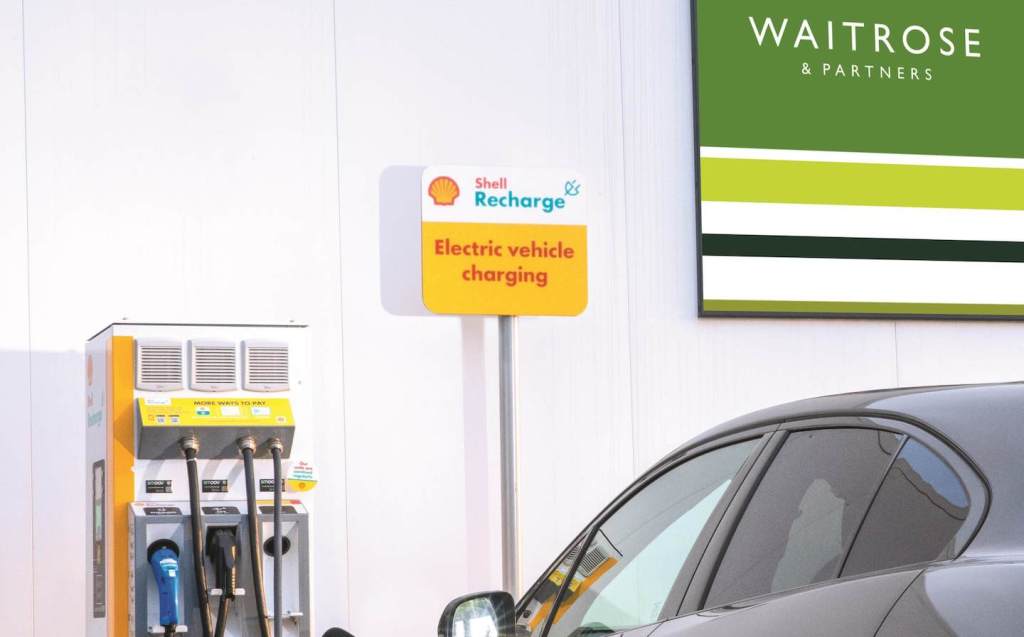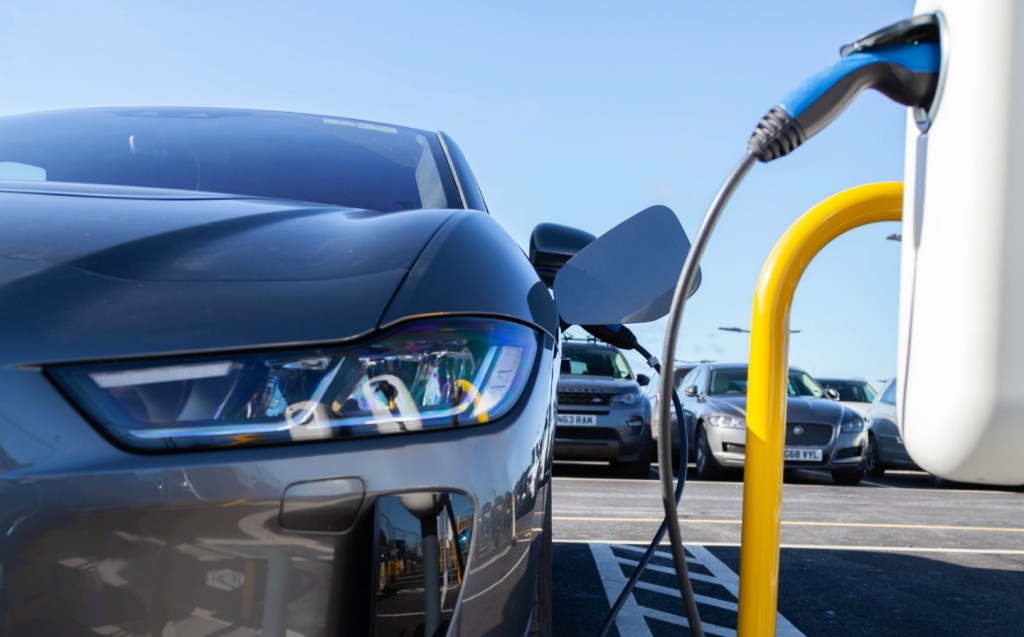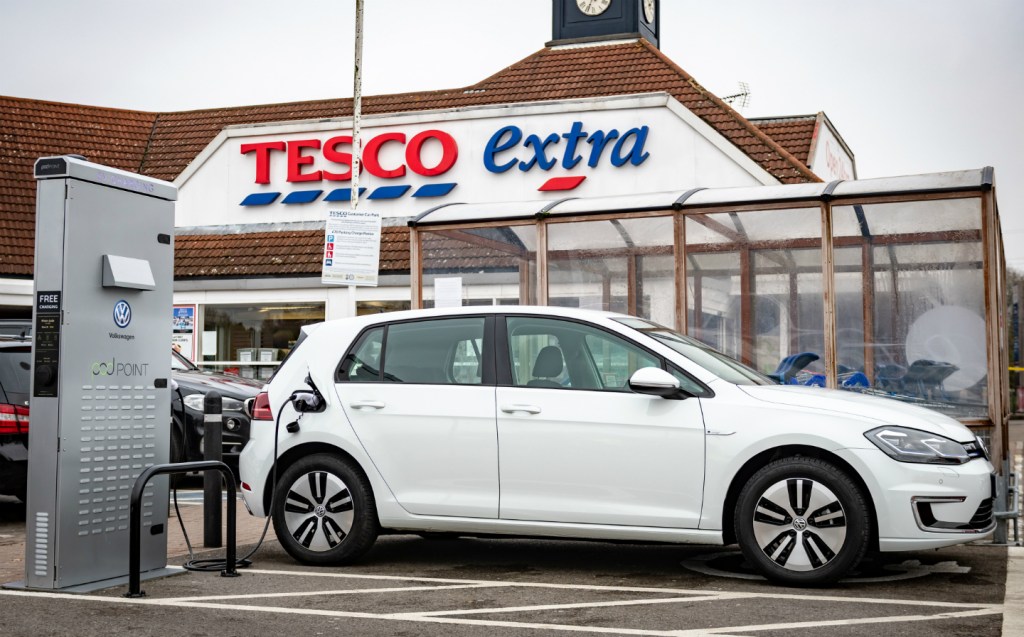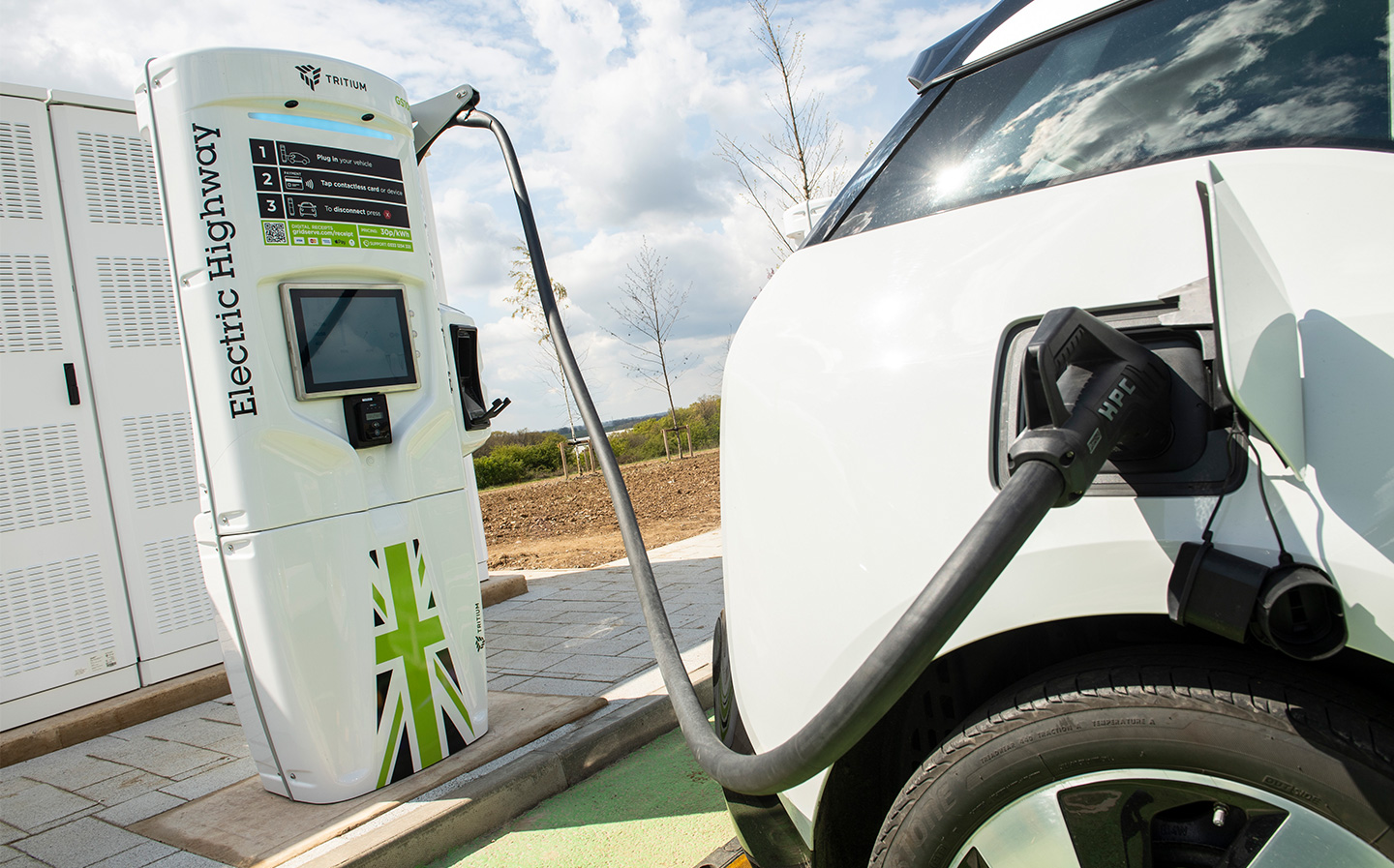Government pledges £500m to increase number of EV charging points tenfold by 2030
Making the UK 'EV-fit for future generations'
The Department for Transport has announced funding of £500m to increasing the number of electric vehicle (EV) public charging points in the UK tenfold over the next eight years and make the network more accessible for drivers.
The £500m will be allocated to the Local Electric Vehicle Infrastructure (LEVI) scheme to provide funding to councils and local authorities for the roll-out of EV charging infrastructure. A sum of £450m will go towards infrastructure specifically while the remaining £50m will pay for strategic planning.
Today’s announcement follows the government’s setting up of the £950m Rapid Charging Fund, which aims to increase to 6,000 the number of EV rapid charging points along the UK motorway network by 2035.

Both tranches of funding will, according to the government, give drivers access to around 300,000 public charging points by 2030, up from around 30,000 today and a number that the DfT claims is five times the number of fuel pumps in filling stations.
This will ensure that the EV charging network is “robust, fair and covers the entire country” and that “those without driveways don’t miss out on cleaner transport,” the department said.
The move follows a Competition and Markets Authority report last year that identified the need for the public charging network to expand to between 280,000 and 480,000 by 2030 in order to cope with the increased demand in the run up to the government’s ban on the sale of petrol and diesel cars in 2030.
With sales of new electric vehicles increasing by 76.3% last year, the national public charging infrastructure has not kept pace with the rate of uptake. While in 2021 the ratio of public charge points stood at one for every 16 vehicles, that has now doubled to one charger for every 32 cars.
The £1.6m in government funding (including the latest LEVI announcement) aims to help the UK deliver the CMA’s recommendations.

Transport Secretary, Grant Shapps said: “No matter where you live — be that a city centre or rural village, the north, south, east or west of the country — we’re powering up the switch to electric and ensuring no one gets left behind in the process.
“The scale of the climate challenge ahead of us all is well known, and decarbonising transport is at the very heart of our agenda. That’s why we’re ensuring the country is EV-fit for future generations by the end of this decade, revolutionising our charging network and putting the consumer first.”
Reliability of charging network must improve
As well as an expansion of the network, the DfT said that it would bring in “rigorous new standards” to improve the user experience at public charging points.
The Department will mandate that operators provide real-time data about charge points, allowing users to use contactless payment and compare prices. The new legislation will also, the DfT said, require a 99% reliability rate at motorway rapid charging stations.
The government’s announcement has been welcomed by motoring and industry organisations, though not without some reservations.
“The government does appear to recognise that ease of use, reliability, slow roll-out for those without home charging and improving charging on motorways, are all essential,” said Edmund King, president of the AA.
“We would like to see urgent action in all of these areas plus we have also called for more focus on charging solutions in rural locations, improvements to the customer experience in terms of safety at charge points in dark, isolated areas and accessibility for disabled drivers.”
Despite welcoming the funding, Mike Hawes, head of the Society of Motor Manufacturers and Traders (SMMT), said the fact that work of expanding the national EV infrastructure network was being delegated to local authorities was of some concern.
The organisation called for a nationally co-ordinated infrastructure-building campaign to ensure that, with an increasing number of motorists driving EVs, the national network was fit for purpose.
“If industry and consumers are to have the certainty they need to invest, commensurate and binding targets must be set for infrastructure provision,” he said.
“Deployed nationally and at pace, this expansion would give drivers confidence they will be able to charge as easily as they would refuel, wherever they are.”

The SMMT’s reaction to the announcement comes days after it called for a “universal right to charge” for “all drivers, wherever they live, wherever they travel and whatever their needs.”
The news of the extra funding was warmly greeted by charging operators, including Ian Johnson, the CEO of Osprey Charging.
“Today’s announcement by the government is an important step towards ensuring that we have the right number of charging points in all locations across the UK,” he said. “This is crucial to give everyone the confidence that when they make the switch to electric, they will be able to charge as easily as they refuel today — whenever and wherever they are.
“These charging stations simply must be reliable, easy to navigate and importantly, accessible for all.”
In addition to the government’s additional funding for EV infrastructure, BP Pulse, another one of the UK’s largest charging operators also announced plans to invest £1bn in its own charging network.
“This £1 billion investment is vital to provide the charging infrastructure the UK needs. We’re investing to build a world-class network,” said Richard Bartlett, senior vice president.
“This investment allows us to deliver more. More high-speed charging in dedicated hubs and on existing fuel and convenience sites. More home charging services. And crucial enhancements to our digital technology that will make charging fast, easy and reliable.”
Related articles
- If you found government pledges extra £500m to expand EV charge point numbers to 300,000 by 2030 interesting, you will want to read that the fuel duty cut makes road pricing ‘more urgent’
- Here are all the car makers’ electric car plans
- Did you read our review of the 2022 Nissan Ariya?
Latest articles
- Skoda Enyaq 2025 review: Same book, different cover for electric SUV

- Lewis Hamilton wants to design a modern day Ferrari F40 with manual gearbox

- Dacia Bigster 2025 review: The ‘anti-premium’ family SUV that punches above its weight

- Your car’s worn tyres could be being burnt illegally in India, investigation reveals

- Open-top 214mph Aston Martin Vanquish Volante is world’s fastest blow-dry






